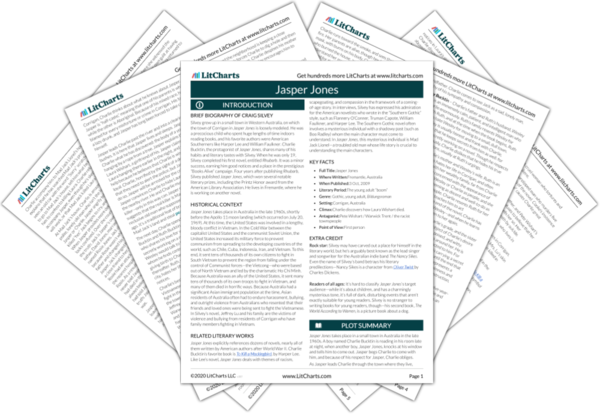This scene is lifted almost exactly from
To Kill a Mockingbird. In Lee’s novel, there’s a moment where the main characters sneak out after dark and see a drunk man urinating in his front lawn. Silvey freely admits the extent to which he “borrows” from other authors, and from Lee more than any other.
